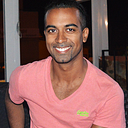Member-only story
5 Incredibly Useful Books to Enhance Your Life Knowledge

**Join Medium here if you aren’t already a member to get access to 1,000s more articles**
One thing the world’s most successful people have in common is that they read, endlessly. And, since you’re on Medium, I can safely assume you enjoy a good read too (just like those ridiculously successful people).
The following books aren’t just excellent reads — they provide immeasurable insight into life’s essential skills. From persuasion and conflict resolution to financial wisdom and understanding oneself.
Read these carefully; the power and understanding they’ll give you will change the way you view the world and how you successfully navigate it.
1. Influence: The Psychology of Persuasion, Robert Cialdini

The seminal work of psychologist Robert Cialdini is a deep, insightful study into the underlying psychological principles which make us human. These are also the exact same principles which come into play when others persuade us, or when we want to…







